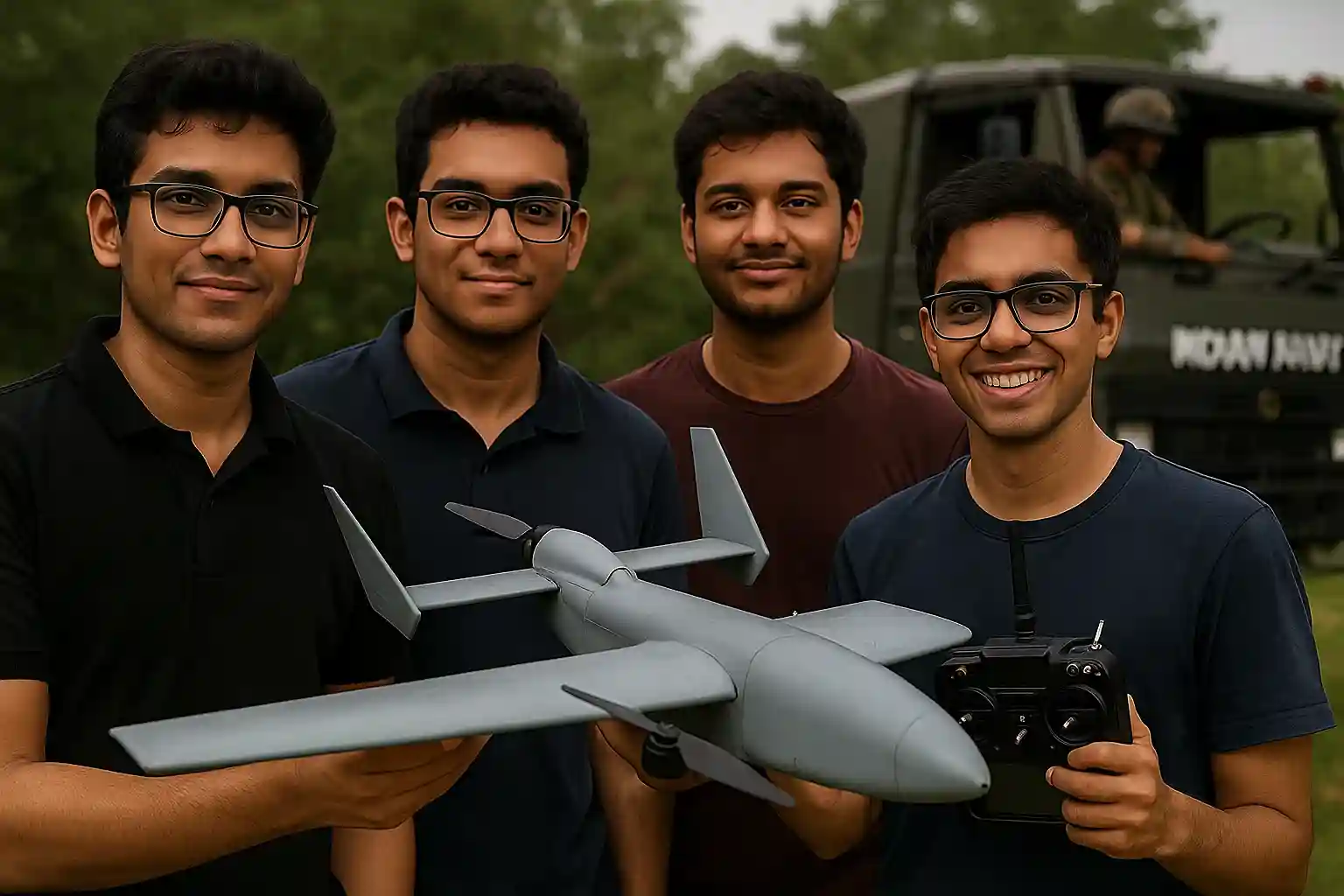BITS Pilani Students Build Radar-Proof Kamikaze Drones, Receive Orders from Indian Army

BITS Pilani Students Build Radar-Proof Kamikaze Drones, Receive Orders from Indian Army
Hyderabad, July 23, 2025 – In a remarkable feat of indigenous innovation, two 20-year-old engineering students from BITS Pilani's Hyderabad campus have developed cutting-edge, radar-proof kamikaze drones and are now fulfilling orders for the Indian Army. Jayant Khatri (Mechanical Engineering) from Ajmer, Rajasthan, and Sourya Choudhury (Electrical Engineering) from Kolkata, West Bengal, have co-founded their startup, Apollyon Dynamics, and are making significant strides in India's defence technology sector.
Operating out of a hostel room, the duo successfully built high-speed kamikaze drones capable of exceeding 300 kmph – nearly five times faster than standard commercial UAVs. These drones can deliver a 1 kg payload with pinpoint accuracy and, crucially, remain undetectable by radar systems.
Their journey began with a shared passion for robotics and a mission to reduce India's dependency on imported defence equipment. "Our shared love of robotics brought us together. We started with a defence-tech club on campus. Then came the orders — that's when we knew we had to go big," said Sourya Choudhury.
The students initially reached out to Army officers via "cold emails" and LinkedIn messages. Their breakthrough came when a colonel responded, inviting them for a demonstration in Chandigarh. This led to a series of successful live demos showcasing the drones' speed, maneuverability, durability, and radar-evading capabilities. Impressed by their performance, various Army units across Jammu, Haryana's Chandimandir, Bengal's Panagarh, and Arunachal Pradesh began placing orders.
"It's heartening to see what they've achieved," remarked Professor Sanket Goel of BITS Pilani. "Their start-up has already secured multiple orders from the armed forces."
Apollyon Dynamics emphasizes building every UAV in-house with a focus on "ruggedness, reliability, and adaptability" to Indian terrain. Beyond the kamikaze drones, their portfolio includes multi-role aerial vehicles for long-range surveillance, tactical payload delivery, and even easy-to-use trainer UAVs. The startup also provides hands-on training to military personnel, including those with no prior flight experience, ensuring rapid operational readiness.
The team, which has now expanded to include six second-year students, is actively working on developing next-generation Vertical Take-off and Landing (VTOL) and fixed-wing platforms to further enhance mission flexibility and operational reach for the armed forces. Their rapid success, transforming a hostel room idea into a vital defence supplier within two months, highlights the immense potential of student-led innovation in India's drive towards self-reliance in defence.


